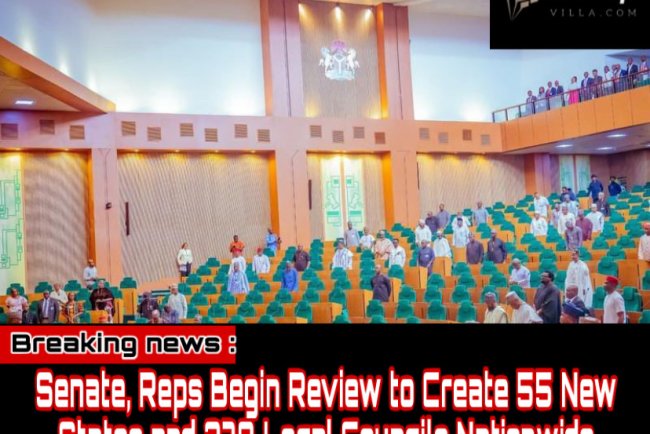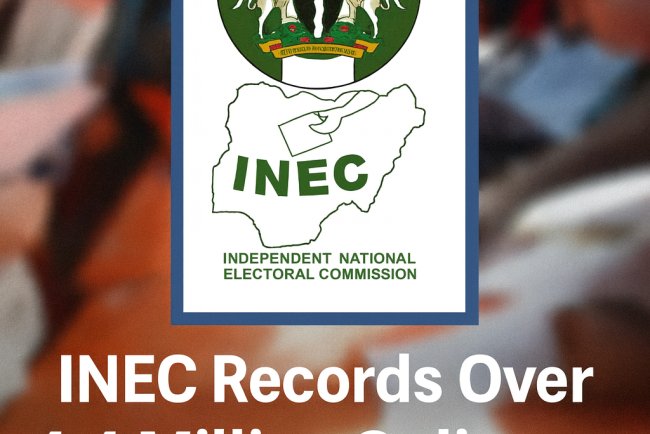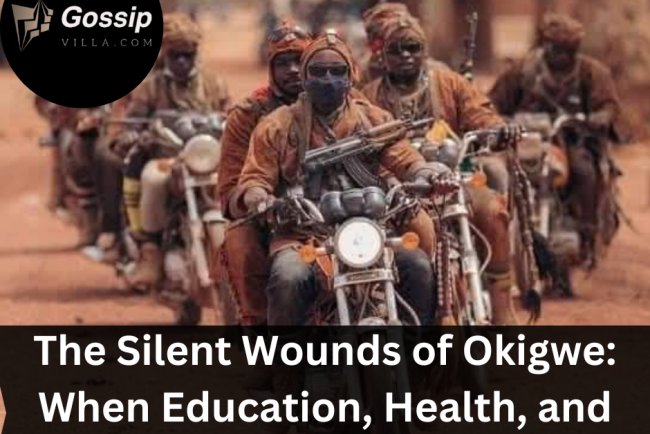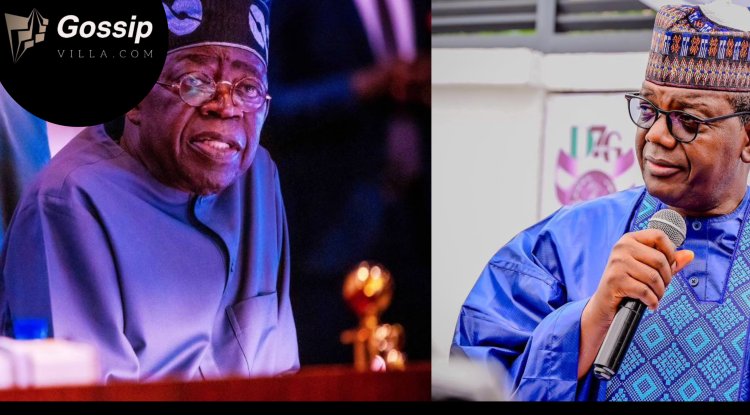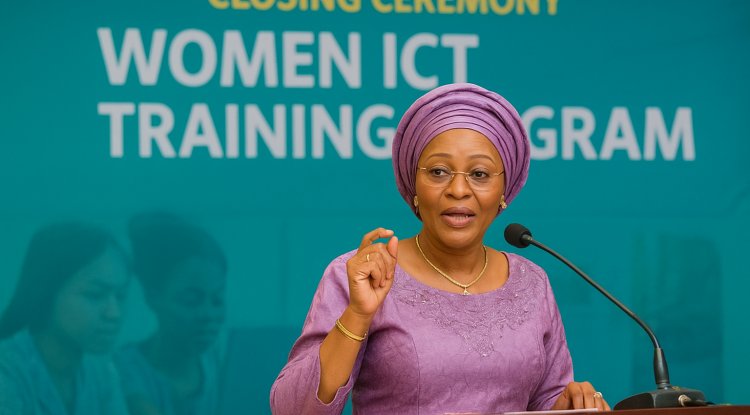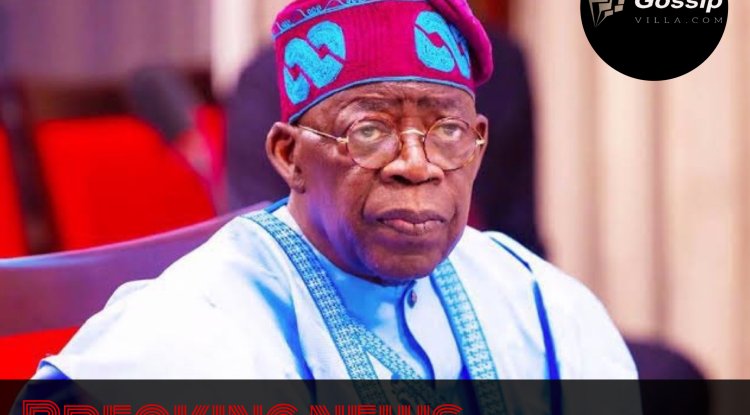Nnamdi Kanu Sentenced to Life Imprisonment: A Turning Point in Nigeria’s Battle Against Separatism
Nnamdi Kanu, leader of IPOB, sentenced to life imprisonment by a Nigerian court on terrorism and treason charges, escaping the death penalty in a landmark ruling

Nnamdi Kanu Sentenced to Life Imprisonment: A Turning Point in Nigeria’s Battle Against Separatism
In a landmark ruling that has sent shockwaves through Nigeria and its diaspora, a federal high court in Abuja has sentenced Nnamdi Kanu, the fiery leader of the Indigenous People of Biafra (IPOB), to life imprisonment on terrorism-related charges. The decision, delivered by Justice James Omotosho, caps a decade-long legal saga marked by dramatic twists, international intrigue, and deep-seated ethnic tensions. While prosecutors had sought the death penalty, the judge opted for a sentence that “tempers justice with mercy,” citing global aversion to capital punishment. This verdict not only underscores Nigeria’s resolve to curb separatist violence but also raises profound questions about justice, human rights, and the fragile peace in the country’s southeast.
As the dust settles on this high-stakes courtroom drama, we delve into the full context: Kanu’s background, the protracted trial, the specifics of the sentencing, immediate reactions, and the broader implications for Nigeria’s security landscape.
The Roots of a Separatist Firebrand: Who is Nnamdi Kanu?
Nnamdi Kanu, a dual Nigerian-British citizen born in the Igbo heartland of southeast Nigeria, emerged as a polarizing figure in the early 2010s. Educated at the University of Nigeria, Nsukka though he left before completing his degree Kanu relocated to the United Kingdom, where he honed his activism. In 2009, he launched Radio Biafra, a pirate radio station broadcasting from London that amplified calls for the resurrection of the Republic of Biafra, an independent state for the Igbo ethnic group. By 2014, he formalized his movement with the founding of IPOB, a pro-Biafra group demanding self-determination through peaceful protests, referendums, and, increasingly, confrontational rhetoric.
The Biafran cause is no modern invention. It traces back to 1967, when Igbo leaders, amid ethnic pogroms and political marginalization, declared independence, sparking the Nigerian Civil War (1967–1970). The conflict, one of Africa’s bloodiest, claimed over a million lives, mostly from starvation and disease, and ended in Biafra’s defeat and reintegration into Nigeria. Decades later, many Igbos still harbor grievances over perceived economic neglect, political exclusion, and violence against their communities. Kanu tapped into this resentment, framing IPOB as a bulwark against “Fulani domination” under successive Nigerian governments.

However, Kanu’s broadcasts evolved from advocacy to incitement. He issued orders to IPOB members often via encrypted apps and online platforms that allegedly spurred attacks on security forces, civilians, and infrastructure in the southeast. Nigeria’s government banned IPOB as a terrorist organization in 2017, citing its armed wing, the Eastern Security Network (ESN), for orchestrating killings and kidnappings. Critics, including human rights groups, argue the ban stifles legitimate self-determination, but authorities point to a surge in violence: over 100 security personnel and civilians killed in IPOB-linked clashes since 2021 alone. (Premium times)
A Decade of Legal Limbo: From Arrest to Absconding and Extradition
Kanu’s entanglement with Nigeria’s justice system began in October 2015, when he was arrested in Umuahia, Abia State, on charges of treasonable felony for his secessionist activities. Granted bail in 2017 after two years in detention, his release was short-lived. A military raid on his home later that year prompted him to flee to Israel, then the UK, where he resumed his broadcasts from exile.
The manhunt intensified. In June 2021, Nigerian authorities announced Kanu’s recapture, claiming he was arrested “on Nigerian soil.” His legal team contested this, alleging he was abducted in Kenya where he held a valid visa and renditioned to Nigeria in violation of international law. Kenyan officials have remained silent, fueling speculation of a covert operation. Upon return, Kanu faced 15 charges, including terrorism, treason, and managing an unlawful society.
The trial, spanning four judges and multiple appeals, was a spectacle of procedural battles. In October 2022, the Court of Appeal in Abuja quashed the charges, ruling his extradition illegal and ordering his release. Nigeria’s Supreme Court overturned this in December 2023, reinstating the case and affirming the trial’s legitimacy. Kanu, detained in solitary confinement at the Department of State Services (DSS) in Abuja, repeatedly decried the process as a “kangaroo court.” He sacked his lawyers in open court, refused to enter a defense, and argued that Nigeria’s Terrorism (Prevention) Act had been repealed, invalidating the charges.
The final stretch was chaotic. In September 2025, Justice Omotosho dismissed Kanu’s no-case submission after he failed to present evidence despite multiple extensions. On November 14, the judge allotted six days for defense preparations, which Kanu allegedly squandered. During the November 20 ruling, Kanu erupted in protest, accusing the judge of bias; he was ejected from the courtroom amid tight security to preempt supporter unrest
.
The Verdict: Life Behind Bars, No Gallows
In a 200-page judgment, Justice Omotosho convicted Kanu on all seven counts: terrorism, treasonable felony, incitement to violence, and affiliation with a proscribed group. The court found “incontrovertible evidence” that Kanu’s broadcasts such as calls to “kill or be killed” and orders to attack “Fulani invaders” constituted preparatory acts of terrorism, executed by IPOB followers.
The sentence: four concurrent life terms for the terrorism convictions, plus an additional 25 years (without fine) on two related counts, all to run concurrently. Omotosho rejected the prosecution’s death penalty plea, invoking mercy and international norms against executions. “The defendant showed no remorse,” the judge noted, “but the court must consider global standards.” Kanu has 90 days to appeal, and special custody conditions yet to be fully detailed include restrictions on communications and visits. (Channels Tv)
Echoes of Division: Reactions Pour In
The ruling elicited a spectrum of responses. Nigeria’s government, through the Attorney General’s office, hailed it as a “victory for rule of law,” emphasizing its role in deterring separatism. President Bola Tinubu’s administration, already grappling with insecurity, views the conviction as a deterrent amid rising ESN attacks.
IPOB and Kanu’s supporters decried it as “judicial murder.” In a statement from exile, IPOB’s spokesperson called it a “continuation of genocide against Igbos,” vowing non-violent resistance but warning of “spontaneous reactions.” Southeast streets remained eerily calm post-verdict, but global rallies in London and the US demanded his release, with hashtags like #FreeNnamdiKanu trending on social media.
Internationally, Amnesty International condemned the trial as “unfair,” citing Kanu’s health deterioration in custody and rendition concerns. The UK, Kanu’s second homeland, urged Nigeria to ensure due process, while the US State Department called for “humane treatment.” Analysts like those at the International Crisis Group warn that the sentence could radicalize youth, echoing the civil war’s unresolved scars.
A Fragile Peace at Stake: Implications for Nigeria
This sentencing arrives at a precarious juncture for Nigeria, Africa’s most populous nation. The southeast, once a economic powerhouse, now simmers with insecurity: IPOB-ESN clashes have displaced thousands and deterred investment. The verdict may temporarily weaken IPOB’s command structure Kanu’s incarceration severs a key communication line but it risks martyring him, galvanizing underground cells and diaspora funding.
Broader ripples include strained federal-ethnic relations. With 2027 elections looming, Igbo marginalization narratives could fuel opposition to Tinubu’s All Progressives Congress. Economically, sustained unrest threatens oil-rich regions and trade corridors. On the positive side, it signals judicial independence, potentially encouraging dialogue on restructuring Nigeria’s federation—a long-standing Igbo demand.
Yet, true resolution demands more than verdicts. Restructuring power-sharing, addressing grievances through commissions like the 2014 National Conference, and inclusive development could defuse the Biafran bomb. As Omotosho noted, Kanu’s “arrogance” blinded him to non-violent paths; Nigeria must now prove it can offer them.
READ MORE ON : #Free Mazi Nnamdi Kanu: Sowore Sparks Nationwide Protest for Justice
Final Thoughts: Justice Served or Simmering Pot?
Nnamdi Kanu’s life sentence closes one chapter but cracks open others. It affirms Nigeria’s intolerance for terrorism but spotlights the perils of perceived injustice in multi-ethnic states. As appeals loom and tensions brew, the world watches: Will this foster unity or fracture? In the spirit of Biafra’s resilient ethos, perhaps the real trial is Nigeria’s—can it heal without erasing its wounds?
What's Your Reaction?







